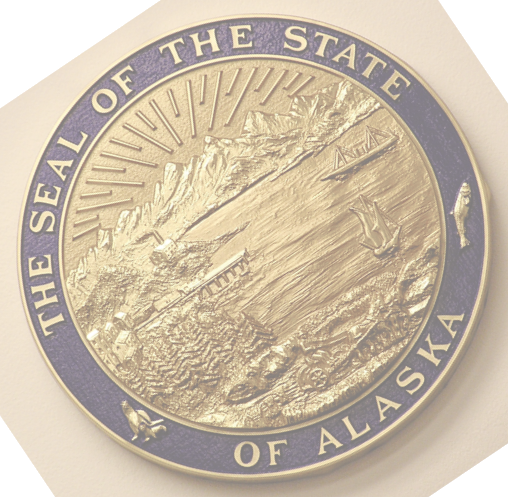Following a three year process of analysis and discussions on the fiscal structure of our oil tax and my past attendance at two advanced international courses in London on World Fiscal Systems for Oil & Gas, led me to conclude that SB21 should not have passed.

Senator Stedman defending the ownership interest of Alaskan’s oil
by speaking against SB 21 on the Senate floor
On March 20th, the Senate passed SB 21, the Governor’s oil tax reduction bill, by a narrow margin of 11 yeas and 9 nays. I voted “no” on the bill because I believe the tax breaks are too generous for oil produced from Alaska’s legacy fields of Prudhoe and Kuparuk. It’s not necessary to reduce the tax in the legacy fields where production is already economic at current prices. The net present value and the internal rate of return surpass the industry’s hurdle rate and are extremely profitable. Today, the value of the remaining reservoir is higher than the cumulative value of all the oil produced to date. A 2011 court decision found there are approximately 7 billion barrels of proven reserves that are “technically, economically, and legally deliverable” in the legacy fields. This value is slightly under $800 billion at current oil prices and those prices are estimated to go up.
In my speech on the Senate floor, I gave many reasons why a lower tax in the legacy fields won’t result in increased production such as: the processing facilities are at maximum capacity; the amount of industry investment necessary to reverse the decline and make up for the surrendered revenue is staggering and not likely forthcoming; and Prudhoe is an aging field with a natural parabolic decline curve that has a minimal relationship to the tax rate. The debate behind declining throughput in the Trans-Alaska Pipeline System is especially troubling because the Department of Revenue is forecasting a 5.5% annual decline rate, while just last month ConocoPhillips told investment analysts on Wall Street that they predict a 2-3% decline in the next few years. There was also testimony at Senate Finance last year that we will be experiencing a 2-3% decline for a few decades. The Department of Revenue’s exaggerated decline rate is just one example of erroneous information being used to make this decision and skew the fiscal impact.
Another change in the tax structure embedded in SB 21 which I oppose is the elimination of progressivity. While I support a less progressive tax on the sale price, I don’t support eliminating progressivity altogether. Progressivity is built into the tax code so Alaskans, who own the oil, are compensated for the value of their hydrocarbon at international rates.
On the Senate floor, I also warned about the unintended consequences of this bill should it fail to increase legacy field production and offset the magnitude of the surrendered revenue. Alaska’s AAA credit rating will likely be downgraded as the state is forced to spend its savings to make up for the budget deficits we’ll face starting next year and for the foreseeable future. Of the $16 billion we currently have in savings, $11 billion is needed for the state’s unfunded liability to the retirement system. Without drastic budget cuts, the remaining savings will be gone long before any increase in production can make up the deficit. At that point, the state will have few options at its disposal besides a statewide income tax, sales tax and/or dipping into the Permanent Fund.
The bottom line is that the oil in Alaska’s legacy fields is an extremely valuable resource on an international scale and is owned collectively by the Alaskan people. The production tax rate is nothing more than the selling price of that resource. As legislators, it is our constitutional obligation to make sure that Alaskan’s wisely reap the maximum benefit from that resource, and the bill passed by the Senate falls far short of satisfying that constitutional mandate.

Comments are closed